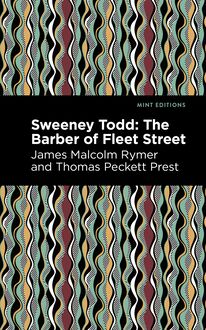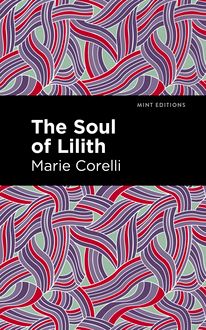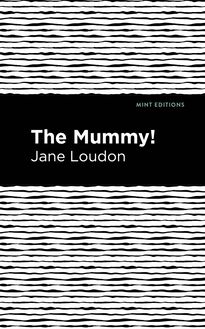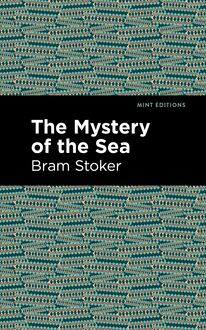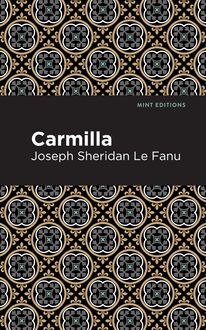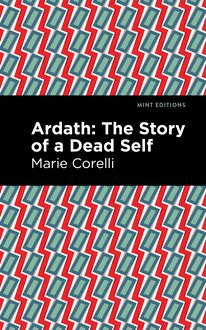-
 Univers
Univers
-
 Ebooks
Ebooks
-
 Livres audio
Livres audio
-
 Presse
Presse
-
 Podcasts
Podcasts
-
 BD
BD
-
 Documents
Documents
-
- Cours
- Révisions
- Ressources pédagogiques
- Sciences de l’éducation
- Manuels scolaires
- Langues
- Travaux de classe
- Annales de BEP
- Etudes supérieures
- Maternelle et primaire
- Fiches de lecture
- Orientation scolaire
- Méthodologie
- Corrigés de devoir
- Annales d’examens et concours
- Annales du bac
- Annales du brevet
- Rapports de stage
La lecture à portée de main
Vous pourrez modifier la taille du texte de cet ouvrage
Découvre YouScribe en t'inscrivant gratuitement
Je m'inscrisDécouvre YouScribe en t'inscrivant gratuitement
Je m'inscrisEn savoir plus
Vous pourrez modifier la taille du texte de cet ouvrage
En savoir plus

Description
Ardath: The Story of a Dead Self (1889) is a science fiction novel by Marie Corelli. Published at the beginning of Corelli’s career as one of the most successful writers of her generation, the novel combines fantasy and science fiction to tell a story of discovery and creation set in a world forgotten for 7,000 years. Due for reassessment by a modern audience, Ardath: The Story of a Dead Self is a must read for fans of early science fiction. Theos Alwyn is a poet whose dreams of success and fame have faltered from a lack of creative energy. Desperate to regain contact with the Muse, Alwyn travels to an ancient monastery in the Caucasus Mountains, where a legendary monk named Heliobas resides. Looking for guidance through an out-of-body-experience, Alwyn gains Heliobas’ trust and receives a powerful vision. Following the advice of an Angel, he journeys to the field of Ardath with a newly reinforced faith. He falls asleep only to wake at the gates of the city of Al-Kyris, where he befriends the poet Sah-Luma, with whom he senses a strange connection. Slowly, events unfold that make him question the nature of his reality. Is he Theos Alwyn the Victorian poet, or is he Sah-Luma, an artist and mystic who died nearly 7,000 years before? When he returns to the present, he discovers a life of fame and success he struggles to recognize as his own, and sets out on one last journey of self-discovery. With a beautifully designed cover and professionally typeset manuscript, this edition of Marie Corelli’s Ardath: The Story of a Dead Self is a classic work of English science fiction reimagined for modern readers.
Sujets
Informations
| Publié par | Mint Editions |
| Date de parution | 14 mai 2021 |
| Nombre de lectures | 0 |
| EAN13 | 9781513286570 |
| Langue | English |
| Poids de l'ouvrage | 2 Mo |
Informations légales : prix de location à la page 0,0500€. Cette information est donnée uniquement à titre indicatif conformément à la législation en vigueur.
Extrait
Ardath
The Story of a Dead Self
Marie Corelli
Ardath: The Story of a Dead Self was first published in 1889.
This edition published by Mint Editions 2021.
ISBN 9781513281551 | E-ISBN 9781513286570
Published by Mint Editions®
minteditionbooks.com
Publishing Director: Jennifer Newens
Design & Production: Rachel Lopez Metzger
Project Manager: Micaela Clark
Typesetting: Westchester Publishing Services
C ONTENTS P ART I. S AINT AND S CEPTIC I. T HE M ONASTERY II. C ONFESSION III. D EPARTURE IV. “A NGELUS D OMINE ” V. A M YSTIC T RYST VI. “N OURHALMA ” AND THE O RIGINAL E SDRAS VII. A N U NDESIRED B LESSING VIII. B Y THE W ATERS OF B ABYLON IX. T HE F IELD OF F LOWERS X. G OD ’ S M AIDEN E DRIS P ART II. I N A L -K YRIS XI. T HE M ARVELLOUS C ITY XII. S AH -L UMA XIII. A P OET ’ S P ALACE XIV. T HE S UMMONS OF THE S IGNET XV. S AH -L UMA S INGS XVI. T HE P ROPHET OF D OOM XVII. A V IRGIN U NSHRINED XVIII. T HE L OVE T HAT K ILLS XIX. A S TRANGE T EMPTATION XX. T HE P ASSAGE OF THE T OMBS XXI. T HE C RIMSON R IVER XXII. W ASTED P ASSION XXIII. “N OURHALMA ” XXIV. T HE F ALL OF THE O BELISK XXV. A G OLDEN T RESS XXVI. T HE P RIEST Z EL XXVII. I N THE T EMPLE OF N AGAYA XXVIII. T HE S ACRIFICE XXIX. T HE C UP OF W RATH AND T REMBLING XXX. S UNRISE P ART III. P OET AND A NGEL XXXI. F RESH L AURELS XXXII. Z ABASTESISM AND P AULISM XXXIII. R EALISM XXXIV. R EWARDS OF F AME XXXV. O NE A GAINST M ANY XXXVI. H ELIOBAS XXXVII. A M ISSING R ECORD XXXVIII. T HE W IZARD OF THE B OW XXXIX. B Y THE R HINE XL. I N THE C ATHEDRAL
PART I
SAINT AND SCEPTIC
“What merest whim
Seems all this poor endeavor after Fame
To one who keeps within his steadfast aim
A love immortal, an Immortal too!
Look not so ‘wildered, for these things are true
And never can be borne of atomics
That buzz about our slumbers like brain-flies
Leaving us fancy-sick. No, I am sure
My restless spirit never could endure
To brood so long upon one luxury.
Unless it did, though fearfully, espy
A H OPE B EYOND T HE S HADOW O F A D REAM !”
— K EATS
I
T HE M ONASTERY
D eep in the heart of the Caucasus mountains a wild storm was gathering. Drear shadows drooped and thickened above the Pass of Dariel,—that terrific gorge which like a mere thread seems to hang between the toppling frost-bound heights above and the black abysmal depths below,—clouds, fringed ominously with lurid green and white, drifted heavily yet swiftly across the jagged peaks where, looming largely out of the mist, the snow-capped crest of Mount Kazbek rose coldly white against the darkness of the threatening sky. Night was approaching, though away to the west a road gash of crimson, a seeming wound in the breast of heaven, showed where the sun had set an hour since. Now and again the rising wind moaned sobbingly through the tall and spectral pines that, with knotted roots fast clenched in the reluctant earth, clung tenaciously to their stony vantageground; and mingling with its wailing murmur, there came a distant hoarse roaring as of tumbling torrents, while at far-off intervals could be heard the sweeping thud of an avalanche slipping from point to point on its disastrous downward way. Through the wreathing vapors the steep, bare sides of the near mountains were pallidly visible, their icy pinnacles, like uplifted daggers, piercing with sharp glitter the density of the low-hanging haze, from which large drops of moisture began presently to ooze rather than fall. Gradually the wind increased, and soon with sudden fierce gusts shook the pine-trees into shuddering anxiety,—the red slit in the sky closed, and a gleam of forked lightning leaped athwart the driving darkness. An appalling crash of thunder followed almost instantaneously, its deep boom vibrating in sullenly grand echoes on all sides of the Pass, and then—with a swirling, hissing rush of rain—the unbound hurricane burst forth alive and furious. On, on! splitting huge boughs and flinging them aside like straws, swelling the rivers into riotous floods that swept hither and thither, carrying with them masses of rock and stone and tons of loosened snow—on, on! with pitiless force and destructive haste, the tempest rolled, thundered, and shrieked its way through Dariel. As the night darkened and the clamor of the conflicting elements grew more sustained and violent, a sudden sweet sound floated softly through the turbulent air—the slow, measured tolling of a bell. To and fro, to and fro, the silvery chime swung with mild distinctness—it was the vesper-bell ringing in the Monastery of Lars far up among the crags crowning the ravine. There the wind roared and blustered its loudest; it whirled round and round the quaint castellated building, battering the gates and moving their heavy iron hinges to a most dolorous groaning; it flung rattling hailstones at the narrow windows, and raged and howled at every corner and through every crevice; while snaky twists of lightning played threateningly over the tall iron Cross that surmounted the roof, as though bent on striking it down and splitting open the firm old walls it guarded. All was war and tumult without:—but within, a tranquil peace prevailed, enhanced by the grave murmur of organ music; men’s voices mingling together in mellow unison chanted the Magnificat, and the uplifted steady harmony of the grand old anthem rose triumphantly above the noise of the storm. The monks who inhabited this mountain eyrie, once a fortress, now a religious refuge, were assembled in their little chapel—a sort of grotto roughly hewn out of the natural rock. Fifteen in number, they stood in rows of three abreast, their white woollen robes touching the ground, their white cowls thrown back, and their dark faces and flashing eyes turned devoutly toward the altar whereon blazed in strange and solitary brilliancy a Cross of Fire. At the first glance it was easy to see that they were a peculiar Community devoted to some peculiar form of worship, for their costume was totally different in character and detail from any such as are worn by the various religious fraternities of the Greek, Roman, or Armenian faith, and one especial feature of their outward appearance served as a distinctly marked sign of their severance from all known monastic orders—this was the absence of the disfiguring tonsure. They were all fine-looking men seemingly in the prime of life, and they intoned the Magnificat not drowsily or droningly, but with a rich tunefulness and warmth of utterance that stirred to a faint surprise and contempt the jaded spirit of one reluctant listener present among them. This was a stranger who had arrived that evening at the monastery, and who intended remaining there for the night—a man of distinguished and somewhat haughty bearing, with a dark, sorrowful, poetic face, chiefly remarkable for its mingled expression of dreamy ardor and cold scorn, an expression such as the unknown sculptor of Hadrian’s era caught and fixed in the marble of his ivy-crowned Bacchus-Antinous, whose half-sweet, half-cruel smile suggests a perpetual doubt of all things and all men. He was clad in the rough-and-ready garb of the travelling Englishman, and his athletic figure in its plain-cut modern attire looked curiously out of place in that mysterious grotto which, with its rocky walls and flaming symbol of salvation, seem suited only to the picturesque prophet-like forms of the white-gowned brethren whom he now surveyed, as he stood behind their ranks, with a gleam of something like mockery in his proud, weary eyes.
“What sort of fellows are these?” he mused—“fools or knaves? They must be one or the other,—else they would not thus chant praises to a Deity of whose existence there is, and can be, no proof. It is either sheer ignorance or hypocrisy,—or both combined. I can pardon ignorance, but not hypocrisy; for however dreary the results of Truth, yet Truth alone prevails; its killing bolt destroys the illusive beauty of the Universe, but what then? Is it not better so than that the Universe should continue to seem beautiful only through the medium of a lie?”
His straight brows drew together in a puzzled, frowning line as he asked himself this question, and he moved restlessly. He was becoming impatient; the chanting of the monks grew monotonous to his ears; the lighted cross on the altar dazzled him with its glare. Moreover he disliked all forms of religious service, though as a lover of classic lore it is probable he would have witnessed a celebration in honor of Apollo or Diana with the liveliest interest. But the very name of Christianity was obnoxious to him. Like Shelley, he considered that creed a vulgar and barbarous superstition. Like Shelley, he inquired, “If God has spoken, why is the world not convinced?” He began to wish he had never set foot inside this abode of what he deemed a pretended sanctity, although as a matter of fact he had a special purpose of his own in visiting the place-a purpose so utterly at variance with the professed tenets of his present life and character that the mere thought of it secretly irritated him, even while he was determined to accomplish it. As yet he had only made acquaintance with two of the monks, courteous, good-humored personages, who had received him on his arrival with the customary hospitality which it was the rule of the monastery to afford to all belated wayfarers journeying across the perilous Pass of Dariel. They had asked him no questions as to his name or nation, they had simply seen in him a stranger overtaken by the storm and in need of shelter, and had entertained him accordingly. They had conducted him to the refectory, where a well-piled log fire was cheerfully blazing, and there had set before him an excellent supper, flavored with equally excellent wine. He had, however, scarcely begun to converse with them when the vesper-bell had rung, and, obedient to its summons, they had hurried away, leaving him to enjoy his re
-
 Univers
Univers
-
 Ebooks
Ebooks
-
 Livres audio
Livres audio
-
 Presse
Presse
-
 Podcasts
Podcasts
-
 BD
BD
-
 Documents
Documents
-
Jeunesse
-
Littérature
-
Ressources professionnelles
-
Santé et bien-être
-
Savoirs
-
Education
-
Loisirs et hobbies
-
Art, musique et cinéma
-
Actualité et débat de société
-
Jeunesse
-
Littérature
-
Ressources professionnelles
-
Santé et bien-être
-
Savoirs
-
Education
-
Loisirs et hobbies
-
Art, musique et cinéma
-
Actualité et débat de société
-
Actualités
-
Lifestyle
-
Presse jeunesse
-
Presse professionnelle
-
Pratique
-
Presse sportive
-
Presse internationale
-
Culture & Médias
-
Action et Aventures
-
Science-fiction et Fantasy
-
Société
-
Jeunesse
-
Littérature
-
Ressources professionnelles
-
Santé et bien-être
-
Savoirs
-
Education
-
Loisirs et hobbies
-
Art, musique et cinéma
-
Actualité et débat de société
- Cours
- Révisions
- Ressources pédagogiques
- Sciences de l’éducation
- Manuels scolaires
- Langues
- Travaux de classe
- Annales de BEP
- Etudes supérieures
- Maternelle et primaire
- Fiches de lecture
- Orientation scolaire
- Méthodologie
- Corrigés de devoir
- Annales d’examens et concours
- Annales du bac
- Annales du brevet
- Rapports de stage
